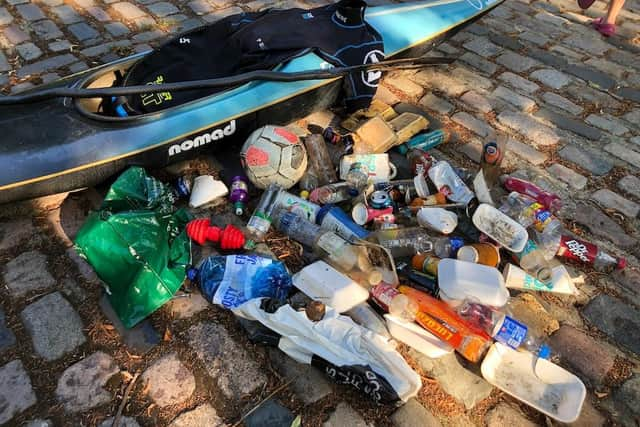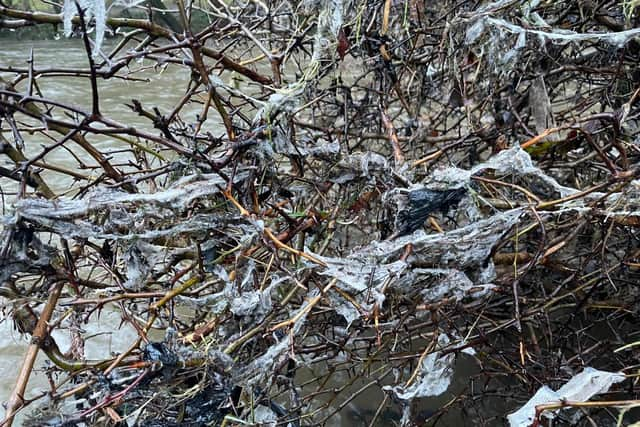Banks of major Derbyshire river clogged with sanitary pads and wet wipes
and live on Freeview channel 276
Paddle Peak, a community project promoting responsible paddle sport in the Peak District, found the ‘sadly common’ sewage pollution in trees lining the banks of the river at Cromford following the recent stormy weather.
Volunteers say the area’s sewage system needs upgrading to prevent sewage and rain water mixing during heavy rain and entering waterways.


Advertisement
Hide AdAdvertisement
Hide AdFounder of the group Pete Astles said his reaction to the discovery was to think of ways to stop it happening, and urged people in the county to play their part.
"We need to find a way of inspiring the public to not flush wipes, sanitary towels and other nasties down the loo,” he said.
"It’s for the three P’s only: Pee, Poo and Paper.
“I’d also ask the wipe and sanitary item brands to label better the products ‘do not flush’.


MORE: Investigation underway after 'small number' of Chesterfield players and staff receive Covid-19 jab
“These items are all single-use plastic. Millions of them a day get flushed down the loo and in times of extreme weather end up in the river and ultimately washing out to sea, harming wildlife and the environment as it goes.”
Advertisement
Hide AdAdvertisement
Hide AdPete says the this type of pollution is only getting worse in Derbyshire’s rivers and streams.
"The River Derwent is an unseen waste highway to the sea, as are most other UK rivers that go through urban areas,” he said.
"The problem is getting worse with so many single-use plastic items washing into our rivers.
Kayakers from the group, who spend large amounts of time cleaning the river, say they experience three main sources of waste: sewage, agricultural waste and litter.
Advertisement
Hide AdAdvertisement
Hide AdPete added: "A lot of litter gets dropped, washed or blown in around the visitor hot spots such as Matlock Bath.
"Another thing we find often is road signs, barriers and cones, thrown in for a laugh I suspect.
"Waste removal from the river is very difficult. The river is ice cold and fast.
"It takes experienced paddlers with full winter equipment to clean it up. The job is never ending and as soon as we get a section looking pristine, we get a flood and it’s terrible again.”